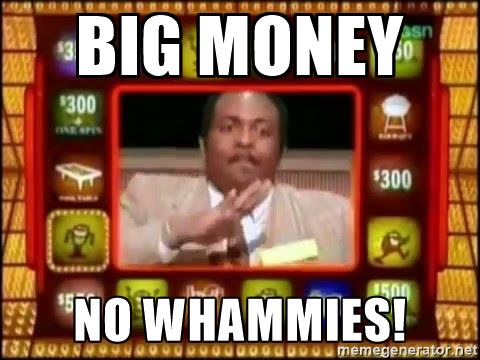This post by Melanie Piche, real estate agent at Sage Real Estate in Toronto, was originally published on www.getwhatyouwant.ca.

Talking about real estate has long been Toronto’s favourite pasttime…but as the spring 2017 market gets into full swing, the conversations have taken on a new tone. The 2017 real estate stats are mind-boggling:
- Prices for March are up 33.2% since March 2016.
- The average detached house in Toronto now costs almost $1.6 million.
- The condo market – which has seen price appreciation of 4-5% for the last few years – saw price gains of 33%. Wowza!!!
It’s true madness out there, and almost everybody agrees that something needs to be done to calm the market. Between panic buying, greedy Sellers and FOMO (Fear of Missing Out), there’s a serious imbalance of supply and demand.

In a city like Toronto – where 46% of the population was born outside of Canada (2011) – foreigners are the fabric of the city. Did you know that 30% of Toronto residents speak a language other than English at home? Amazing. Toronto’s population is growing at one of the fastest rates in the country, and that’s a great thing for our economy – it also means all those people need a place to live.
Fact: There aren’t a lot of ‘good’ investments out there, and foreigners have long considered Toronto’s real estate market a safe place to park their money. While a new tax will slow the foreign money coming in, it certainly won’t eliminate it.
Would a foreign buyer’s tax work here in Toronto?
My guess, based on our team’s experience and the anecdotal experiences of other top agents, is that non-residents account for 3-5% of the market in Toronto. A tax would certainly give pause to some of those Buyers – but not all of them.
A non-resident tax would, however, shock the system and psychology of ALL of the Buyers, resulting in a lower volume of sales…at least in the short term. Would that translate to lower prices? It would hopefully slow down the pace of growth (33% per year is clearly not sustainable) – but it’s hard to imagine prices decreasing much. Toronto has proven itself to be resilient to a lot of government intervention over the years. People want to live in Toronto, just like they want to live in New York, London, Tokyo, and Paris.
Vacancy Tax
Vancouver has recently implemented an annual $10,000 vacancy tax to discourage homeowners from leaving their homes empty, and there’s talk of a vacancy tax coming to Toronto too. The hope is to financially penalize those owners in the hopes that they might sell their empty properties.
Problem #1: Nobody has any idea how many condos and homes are vacant here and if this is an actual problem or not.
Problem #2: If an owner is already paying tens of thousands of dollars per year in taxes and maintenance on a vacant property, would an extra tax really change anything? It seems like an easy way to make a little extra tax money for the City, from people who don’t get a vote in the next election.
Changes to Financing Rules
In the past, government intervention has focused on making it harder for people to buy (with the hope of reducing demand). They’ve changed downpayment rules, CMHC rates, qualifying requirements and in October 2016, they announced a new stress test that reduced the amount of mortgage many people could qualify for.
The problem? None of these changes have ever had much of a long-standing impact in Toronto, beyond the first few weeks of implementation. In fact, I’d argue that the 2016 changes moved many buyers from the house market and put them into the condo market (thus increasing demand for condos and bidding wars), and it forced a lot of would-be-condo-sellers to stay put because they couldn’t afford a house, thus further reducing supply.
Double whammy….higher demand, lower supply.

Changes to Capital Gains Exemptions
Before the federal budget was announced, there was a lot of talk about whether or not they would change the capital gains exemption amount.
Currently, only 50% of the gain on the sale of an investment property is taxable, meaning that if you bought a condo for $500,000 and sold it for $600,000, you’d only pay tax on 50% of the $100,000 increase in value (less expenses of course). If capital gain exemptions were to change – for example, an investor would be taxed on 65% or 75% of the gain instead of 50% – that would certainly impact Toronto’s real estate market (while hurting other communities across the country too).
There’s a real risk that the result of an increased gain exemption would be investors holding onto their properties to avoid the tax…thus further reducing supply. Savvy investors do think about tax implications when they buy – but most people who own 1 or 2 investment properties, don’t think about it until they sell – so we might not see much of a change in demand anyway.
Nonetheless, the budget did not contain a change to capital gains, so this isn’t likely something we’ll see anytime soon.
Rent Control
In Ontario, properties built after 1991 aren’t subject to the usual caps on rent increases, meaning that a landlord can theoretically increase a tenant’s rent by as much as they want at the end of someone’s lease. Truth: this doesn’t happen very often and is usually a tactic used to get rid of a problem tenant without going through the painful eviction process. But nonetheless, the rule exists as a way to encourage investors to add to the rental pool and sway builders to build purpose-built rental properties which are in significant short supply in Toronto.
One of the tactics being discussed to reduce speculative investor buying is to make all properties, irrespective of construction date, subject to the usual rent controls (which are equal to the Consumer Price Index).
Will more rent control work?
I don’t think most investors are buying properties to take advantage of the 1991 rule…in fact, most investors didn’t even know about it until the media started reporting it in the last 6 months. More importantly though, discouraging more rental units will only make Toronto’s rental situation worse – rents have increased by 11.7% in the last year and vacancy has been hovering around 1% for years. If the goal of slowing Toronto’s rental market is to make Toronto liveable and affordable, penalizing tenants seems ill-advised. We need MORE rental stock, not LESS.

Changes to Bidding War Rules
A lot of Buyers and REALTORS have been lamenting the current lack of rules dictating bidding wars and noting the impact on prices. Truth: the current bidding war wild-west is painful and unpleasant and blind bidding likely does increase prices. In the heat of a bidding war, it’s not uncommon for multiple bidders to be sent back to ‘improve their offers’, thus driving up prices.
While I have a lot of ethical issues with how bidding wars are often run in Toronto, I have to wonder: should the government really be able to tell Sellers that they can’t push Buyers in the hopes of getting the highest possible price for their home? In a free market, the value is set when a buyer is willing to pay X, and the Seller is willing to accept X. I know the current situation is terribly frustrating for Buyers – but if they are willing to pay X price for a property, why shouldn’t they be allowed to do it? Do Buyers need protection from themselves? And let’s face it: the market isn’t always going to be like this. There will be a day when it’s a buyer’s market. Would the government then change the bidding rules back?
Note: I think the bidding war process needs an overhaul and more oversight…but not because the practice is the reason for Toronto’s overheated market. I wrote about that here.
Increase Supply?
Most of the tactics being discussed are aimed at decreasing demand, which yes, is part of the problem. But there are strategies that could help increase supply too:
- Simplifying the process for permits, severances, and approvals
- Easing the rules on development of the greenbelt
- Reducing land transfer taxes in the hopes of encouraging more move-up buyers (lol, who are we kidding, the Toronto and Ontario governments are addicted to these taxes)
What Next?
Is Toronto’s market spiraling out of control and in need of government intervention? Or are we witnessing the Manhattanization of Toronto where ‘normal’ people with ‘normal’ jobs are simply priced out of living downtown?
Will the government intervene to slow down Toronto’s real estate market or let the market work itself out? In the last week, we’ve already started to see the signs of the seasonal slowdown, with fewer showings and fewer Buyers bidding on houses.
What do you think is going to happen?